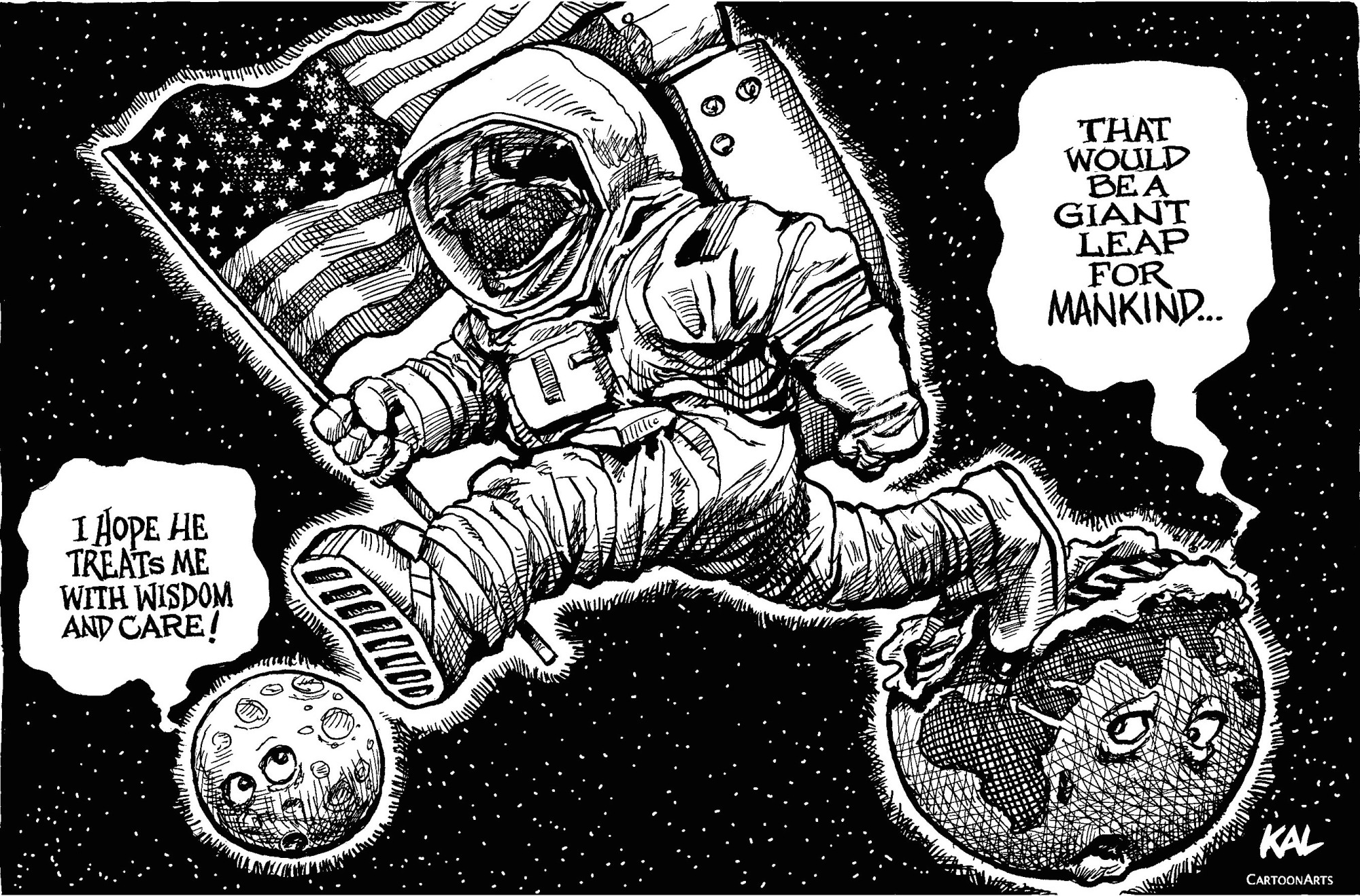Fifty years after Neil Armstrong, Buzz Aldrin and Michael Collins blasted off for the moon, a new space race is on. It is one that may affect the future of humanity even more than its Cold War predecessor, both on earth and in the wider cosmos.
As it celebrates Apollo 11's moon mission, NASA finds itself in the midst of a major shake-up — the result of the Trump administration's pledge to return humans to the moon by what he hopes will be his final presidential year of 2024. That would be well in advance of China's stated intention of conducting its own manned landing in the 2030s, and it would be no surprise if the new U.S. 2024 target prompts a similar shake-up in China's space program.
Under Prime Minister Narendra Modi — like Trump another assertive nationalist — India this year aims to be the fourth nation to send an automated probe to the lunar surface. The Chandrayaan 2 blasted off on Monday, a week after the mission was aborted due to a technical problem.



